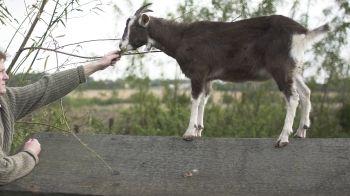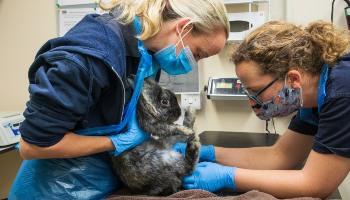Before deciding to keep farm animals as pets, it's important to consider whether you have the knowledge, time, facilities, money and commitment needed to care for them. If you believe you have these things, you'll first need to build your knowledge and experience of farm animal health and welfare, including:
- Meeting their needs - understanding the animals' physical and behavioural needs
- Diet - knowing how to provide the correct diet
- Illness - being able to recognise signs of injury and disease, knowing how to prevent these and when to get veterinary help
- Handling - knowing how to handle the animals correctly and safely
- Day-to-day care - knowing how to carry out day-to-day tasks
- Laws - understanding the laws and requirements
Consider learning from experienced owners, joining a breed club or society, helping on a farm or attending a training course. Here are some other things to think about.
Environment
Remember, most farm animals need to live in groups, which means you'll need to keep at least two animals of the same species that get on well together. Farm animals need enough space, the right type of land, housing and shelter, fencing and things to keep them interested and let them behave normally. For some animals, this could mean you need to build new housing, which may need planning permission.
Veterinary care and notifiable diseases
Farm animals often need regular visits from a vet for things like vaccinations, health checks and emergency care. For example, if there's an outbreak of a notifiable disease (such as bird flu) in the UK. You'll need to check for the most up-to-date information and advice:
Rearing animals for meat
If you're thinking about rearing farm animals for meat, you must be aware of the strict laws covering the keeping, feeding, identification, transport and slaughter of farm animals and on meat hygiene. We strongly recommend that you don't try to slaughter animals yourself - you could cause severe suffering, which would be a serious offence under the law. Contact Defra for information about this, and read more on this important issue from the Humane Slaughter Association.
Animals best avoided as pets
We advise against trying to keep cattle, as it's very difficult to care for them properly without a lot of knowledge, experience, large amounts of land and specialist facilities. Pigs can also be challenging to care for, and we'd urge anyone considering keeping a pig as a pet to find out as much as possible about their needs and whether it's a realistic pet for you.
Learn more about keeping farm animals as pets in our guides on goats, pigs, chickens, ducks and geese.



